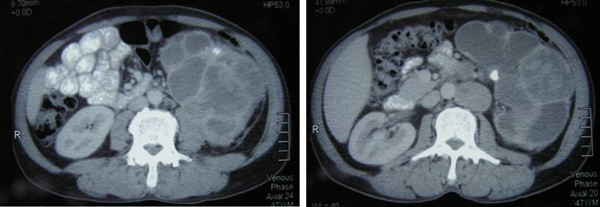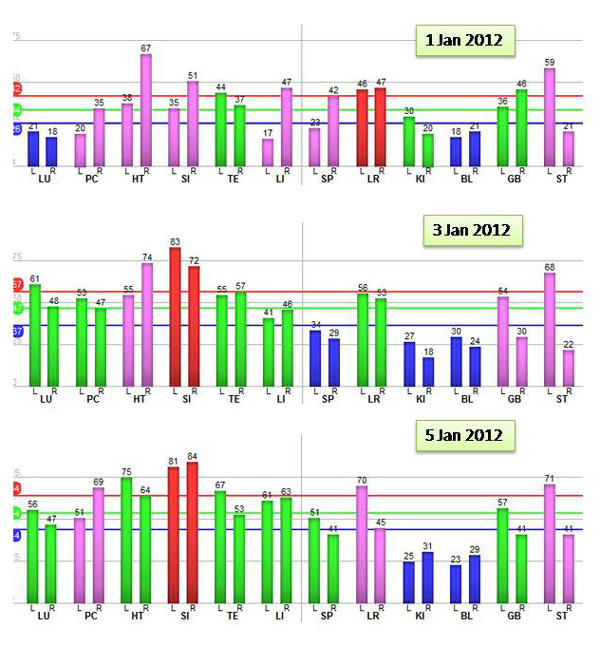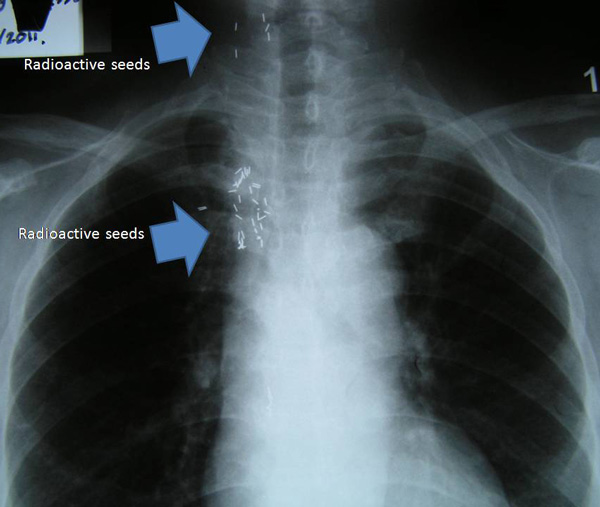After posting the article, Malaysia’s Well Known Oncologist Died of Cancer, some readers wrote to ask what cancer he had and what he did that he died. Unfortunately, I was unable to answer these two important questions. Then out of the blue, someone wrote to fill in the gap. So here it is – the e-mail (reproduced with the kind permission of the writer).
Another question left unanswered. What medical treatments did he receive and he died because of his cancer or his treatment? We can never know, one day we may get an e-mail from another angel ?
1st April 2013: Dear Dr Chris Teo,
I am writing this in response to your post (16 March 2013).
It was indeed a shock for me to read in The Star news that Dr Albert Lim Kok Hooi passed away from cancer at age sixty.
Many questions ran through my mind.
- What cancer did he die from?
- When did he find out that he had cancer?
- How did he treat his own cancer?
- Why did he discover his cancer at such a late stage?
I surfed the Internet to try to find more details. When I could not find any information, I contacted friends who knew him and his family.
I was informed that Dr Albert Lim had prostate cancer which spread to the bone and liver. Apparently his cancer was diagnosed a year ago. However he kept it from the public. No one in the hospital was allowed talk about it.
If The Star did not publish the cause of his death, we would not have known that Dr Albert Lim passed away from cancer.
Recently, I came across an online article and confirmed that Dr Albert Lim learnt he had cancer a year ago. http://thestar.com.my/health/story.asp?file=/2013/3/17/health/12844733&sec=health
To quote from the article
He also kept his cancer a secret from acquaintances and friends.
He was a private person in many ways. His cancer was something to be dealt with within the family
Now this brings up some interesting issues.
Why did Dr Albert Lim choose to keep his disease a secret?
As a prolific writer in the papers, he shared his knowledge, medical training and experience to raise the level of public awareness on how to prevent cancer, treat cancer and how to cope with cancer.
Was he doing a social service or was he merely writing to boost his image after his six months suspension from the Malaysian Medical Council?
http://thestar.com.my/news/story.asp?file=/2007/2/23/nation/16951173&sec=nation
What had he hoped to achieve by keeping his cancer a secret?
Normally it is the patient’s prerogative whether to keep the disease secret or make it public. However Dr Albert Lim is no ordinary patient. He is a leading oncologist and a respectable authority on cancer locally and internationally. He was actively running a thriving oncology practice. He had cancer patients who made decisions based on trust and confidence in his prescriptions. Had he disclosed his condition, would some of the patients choose different courses of treatment?
It would seem that there is some implied moral duty or fiduciary duty to disclose his cancer as he is an involved party. Steve Jobs was chided for trying to conceal his pancreatic cancer from the Apple Board and investors. Under stock exchange rules, it was material disclosure as the information would have caused some investors to make their decisions differently.
Here, how do you think his patients would feel? Having faith in a doctor and having spent thousands of ringgit on chemo and other treatments, he read in the newspapers that his oncologist passed away from cancer! And the patient had no inkling that his oncologist had cancer!
It would not be unreasonable to conclude that Dr Albert Lim kept his cancer a secret as it is sheer bad publicity for the medical industry. If the Physician Heal Thyself maxim, does not work, what faith can the patient have in the doctor? Was Dr Albert Lim worried that his business would be affected?
I am not saying that doctors are not human and that they are immune from diseases. Of course an oncologist can also be afflicted by cancer like anyone else. However, when an oncologist dispenses How To advice, we would expect that the probability of him diagnosing himself at an early treatable stage is higher than anyone else. And if he did get cancer, share the journey with others so as to benefit all.
I read a New Straits Time article dated 26 November 2012 that Dr Albert Lim gave media statements endorsing a new chemo drug which offered hope for late stage prostate cancer patients.
http://www.nst.com.my/latest/hope-for-prostate-cancer-patients-1.176963
It would now seem ironical that four months later, Dr Albert Lim died from prostate cancer. At the launch of the new drug, he knew that he was suffering from late stage prostate cancer. Unless he had tested it himself and it worked, it would seem so inappropriate to endorse a highly toxic drug. Chemo drugs are very expensive. It is unfair to sell hope to poor patients, while not proving its efficacy on oneself. Would the drug company have asked him to endorse the launch of the drug had they known the facts?
I got to know Dr Albert Lim nineteen years ago. He was Head Oncologist at KLGH. He treated my father for terminal lung cancer for six months. During that time I got to know him fairly well on a social basis.
Well, when one meets with an oncologist in a social setting and he is not wearing his professional mask, one gets some interesting insight into the medical industry.
Perhaps in those days, chemo drugs were not as advanced as today.
In the course of conversations, I found that oncologists viewed cancer patients, especially late staged ones as quite hopeless cases. The majority of cancer patients who came to seek treatment would die anyway. Whatever the oncologists do will not make much of a difference. It is a matter of time but the cancer will spread. However since patients came with hope and expect the oncologist to do something, he has to administer the prescribed industry treatment protocols whether he believed in them or not, whether he would practice the same treatment on himself or not!
Maybe the chemo drugs today are more powerful in combating cancer and Dr Albert Lim has changed his views after starting private practice. I do not know. After my father passed away I did not keep in touch. I hear of him on and off from some patients and through reading his articles.
Over the years, I had two close friends and my step mother who succumbed to cancer. They had their share of stories when dealing with oncologists.
Dr Albert Lim and most other oncologists are averse to alternative therapies, labeling anything that is not from Western medicine as quackery. I am not denying that there are some cases where cancer patients have benefitted from oncology treatment. My aunt now in her eighties survived breast cancer for forty years. She could only afford minimal cancer treatments from the hospital and nothing else. Another friend now in his fifties has against all odds battled cancer over twenty years with chemotherapy, stem cell replacement, consuming birds nest daily and mainly a strong willed mind.
However in many other cancer cases, the treatments prescribed by the oncologists did more harm than good. Unfortunately many specialists in private practice run their clinics like running a business. They have high overheads and of course, there is always the thrill of making money like any other business. In private practice, everything revolves around money.
I strongly believe in the mind-body model, the intelligence of the body to heal itself and that diet and herbs are Nature’s gifts to mankind. I do not know you but I have been following your work on and off since the publication of your first book.
At that time, my old classmate and dear friend, suffered from Stage 3 NPC. She went to a famous oncologist and was prescribed a course of radiotherapy. At the end of the sessions, he asked her to say AHHH… looked at her tongue and throat and declared her free from cancer. No other tests were done. I asked her to go to your clinic as additional treatment but she refused.
She was jubilant and went round testifying in the churches that God healed her. Six months later, the cancer came back with a vengeance. She sought treatment from a UH oncologist who gave her chemotherapy but it was too late. I saw her two weeks before she died. She held my hand and said the saddest words I ever heard “I was a fool to believe Dr T ” (the first oncologist who declared her cured). Faith is invaluable but we must be realistic.
Last year, my close friend who is a well known corporate figure, died from Stage 4 stomach cancer which spread to bones, pancreas and abdomen. Initially he was given six months to live. He was treated by the best oncologists in Singapore and locally as his company paid the medical bills. After the first six months of chemo treatment and breathing meditation which we encouraged him to learn, the PET scan showed that the cancer had disappeared. The Singapore oncologist said to him, ‘Whatever you are doing, continue with it’!
At that time, I asked him to go to your clinic to get additionally therapy. However he refused saying that he would follow the doctor’s advice. He too was jubilant and immersed himself fully in his hectic work and had no time for his breathing and meditation. Six months later, the cancer came back. He spent the next twelve months with massive chemo treatments, switching from one drug to another when the cocktail did not work. It was sad to see his health and body getting worse with each treatment. He passed away 2 ½ years after he was diagnosed. The company spent nearly RM2 million for the treatments. How many patients can afford to pay such massive sums for cancer treatment?
When friends tell me so-and-so is diagnosed with cancer, I always recommend that they explore your alternative therapy with an open mind. It is up to each to follow his inner guide as to what treatment they should sought. Living and dying are not in our hands. We do what we can to help by telling patients that there are alternatives besides chemotherapy.
I hope this fills up the gap in your blog as to how Dr Albert Lim died.
When I read Dr Albert Lim’s obituary, I wondered how he felt the instant he was diagnosed. It would have been truly useful if Dr Lim had documented his own journey. That would have been ultimate service to humanity.
Did Dr Albert Lim administer the same toxic treatments he recommended to others for himself? Do chemotherapy and other oncology therapies work? Well, it would seem not but we shall never know. It is very easy to preach but not easy to walk in the patient’s shoes. Anyway, may the good he has done live on.
In closing, since we did not get to hear Dr Albert Lim’s experience, it may be interesting to read how other oncologists wrote about their own cancer journey.
http://www.npr.org/2010/12/14/131760656/a-breast-oncologist-diagnosed-with-the-disease
http://www.nytimes.com/2005/05/24/health/policy/24docs.html?pagewanted=all&_r=2&
http://www.kevinmd.com/blog/2012/02/diagnosis-stomach-cancer-profoundly-oncologist.html
The following article had gone viral but it is a very touching account from Dr Richard Teo (not an oncologist but a plastic surgeon) from Singapore who documented his cancer experience before he passed on. Irrespective of one’s religious beliefs it will be worthwhile to read with an open mind.
http://www.heavenaddress.com/Dr-Richard-Teo-Keng-Siang/424153/379719/content
Wishing you all the best always.
Yim,
Petaling Jaya
My Comment:
Thanks dear writer for giving us your precious time to share your thoughts. You have done your part! Let me conclude with these quotations:





Comment added: 23 May 2013
“Another question left unanswered. What medical treatments did he receive and he died because of his cancer or his treatment? ”
I have some further information.
Last week, I met a family friend of Dr Albert Lim. She informed me that she only got to know Dr Lim had cancer two months before he passed away.
I asked if Dr Lim administered any treatment on himself. She said that when he was diagnosed with Stage 4 prostate cancer, he started chemotherapy. However after a few treatments, the cancer got worse and he opted to end the chemo treatment. He preferred to let the cancer advance faster. He knew there was nothing more he could do.
I asked why Dr Lim could not diagnose his own cancer earlier. Apparently, he did not have any symptoms and the cancer markers did not pick up the prostrate cancer. His oncologist friend from Europe who visited him while he was ill, commented that he too, has come across a few cases in Europe where the prostate cancer did not show up in cancer markers.
I heard from one of Dr Lim’s patients that Dr Lim was administering chemotherapy to the patient up to a week before he died. She noticed that he looked very tired and old, but he was very very nice to the patient. Of course it came as a shock to the patient to read that her oncologist died of cancer as no one knew that he was suffering from the disease.
The purpose of my writing is not to run down the Doctor or the treatments. What I learnt from this whole episode is.
1) Cancer is not always detectable at an early stage.
2) When diagnosed with cancer, a patient should educate himself on all options of treatment available and make an informed decision himself.
It is not prudent to rely on medical opinion alone.
All doctors are trained and sponsored in some way by Big Pharma. At the end of the day, they will push drugs which may not yield the desired results but because it is standard protocol, they have to recommend the regime to the patient.
The patient end up spending and suffering unnecessarily.
Over the last four years when I accompanied my step mum for her cancer treatments at UH, I came across patients who spent all their money at private hospitals. With no money left, they came to UH to seek subsidised treatments. It was so pitiful to talk to them, some mortgaged or sold their homes, some borrowed money and others took loans to find the elusive care.
I hope the day will come when there will be oncologists with conscience, oncologists who will honestly tell patients when all hope is gone, to stop wasting their money and find some other means of natural treatment and palliative care.
Kind regards.
Yim, Petaling Jaya































You must be logged in to post a comment.